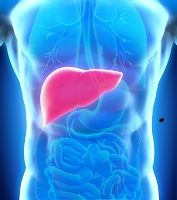Cytokeratin 18 Predicts Mortality in Acute Liver Failure
Researchers in India have found a reliable and sensitive marker to predict how close to organ failure seriously ill patients with liver disease may be.

There have been many attempts to find markers that could accurately predict which patients are likely to die of acute liver failure (ALF) without a transplant.
Reporting at the 2015 International Liver Congress in Vienna, Austria, a team from New Delhi, India believes it has found one.
Premashis Kar and colleagues at Maulana Azad Medical College, in at abstract presented April 24, describe their research. They evaluated 45 adult patients with ALF in intensive care units at Lok Nayak Hospital in New Delhi.
All were given liver function tests and their serological markers for HbsAg, IgM, anti- HCV, IgM anti-HAV, IgM anti- HEV and CK 18 levels were assessed by ELISA both at baseline and later in the course of their disease.
They found significant differences in CK 18 levels in those who died and those who lived.
When compared to the MELD score used in determining how close to total liver failure patients are, a new formula using CK18 levels was found to be a better and more sensitive prognostic marker.
Once CK18 levels reach 988.07 mlU/ml these patients should be considered to be liver transplant candidates, the team concluded.
“The results of our study suggest that initial serum CK 18 levels predict outcome in ALF patients,” the researchers wrote, noting that transplant surgery “can be life-saving for these patients.”